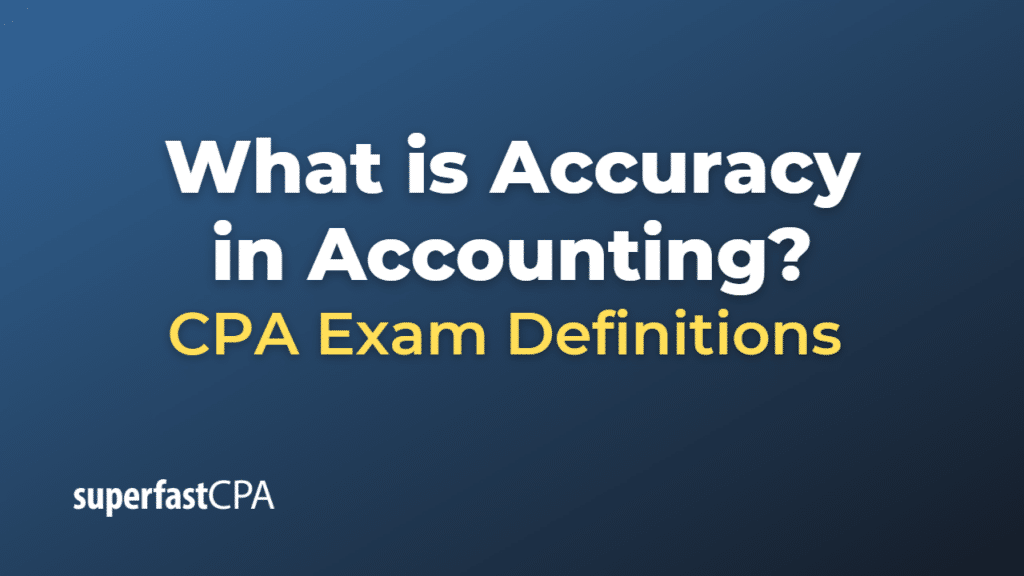Accuracy
Accuracy in accounting refers to the precision and correctness of financial information recorded and reported in an organization’s financial statements. Maintaining accuracy in accounting is essential for ensuring that financial data accurately reflects the organization’s financial position and performance.
Accuracy in accounting involves:
- Properly recording financial transactions in accordance with accounting standards and principles.
- Ensuring that data entry is error-free, and correcting any discrepancies that may arise.
- Regularly reconciling accounts to identify and resolve any discrepancies between the accounting records and the supporting documentation.
- Conducting internal audits to ensure compliance with accounting policies and procedures.
- Ensuring that the financial statements are prepared in accordance with the applicable accounting framework (such as GAAP or IFRS).
Accurate accounting records are crucial for decision-making, tax compliance, and financial reporting to stakeholders, including investors, creditors, and regulatory authorities. Accuracy in accounting helps build trust and confidence in an organization’s financial health and stability.
Example of Accuracy
Let’s consider a simple example of accuracy in accounting related to recording a sale transaction.
Suppose a company sells a product to a customer for $500, and the sale transaction needs to be recorded in the accounting system. To maintain accuracy in accounting, the following steps should be taken:
- Record the transaction with the correct date: Ensure the transaction is recorded on the date the sale took place.
- Apply the correct accounts: Record the sale transaction in the appropriate accounts, such as debiting the accounts receivable account and crediting the sales revenue account.
- Input the correct amounts: Ensure that the correct amount of $500 is recorded in both the accounts receivable and sales revenue accounts.
- Verify the transaction: Review the transaction to ensure it has been accurately recorded in the accounting system.
- Reconcile accounts: Regularly reconcile the accounts receivable and sales revenue accounts to ensure there are no discrepancies in the recorded transactions.
By taking these steps, the company ensures that the sale transaction is accurately recorded in the accounting system, which contributes to the accuracy of its financial statements. Accurate financial statements help the company make better financial decisions, maintain regulatory compliance, and build trust with its stakeholders.













